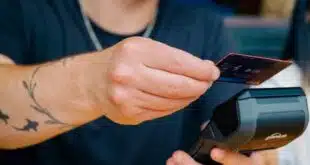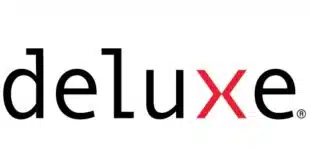PIN-debit cards and contactless acceptance seem like two unlikely electronic-payment services to promote in one point-of-sale device, but that's exactly what First Data Corp. is doing with the latest addition to its FD line of POS hardware. The big processor's goal with the new FD-30 PIN pad: build future demand for contactless payments through a competitively priced device for merchants looking to accept PIN-based debit. Many industry executives and analysts see contactless as a technology that eventually could replace the decades-old magnetic stripe. But, apart from a few retailers that want to convert small cash transactions to electronics and highly value transaction speed, few merchants have bought into that idea. MasterCard Inc. says there are about 146,000 locations worldwide that accept its PayPass contactless card. Yet contactless is building momentum, according to First Data. The company's news release announcing the FD-30 cites recent research from Yankee Group estimating that contactless transactions will total 23.6 billion in 2012 and 31.8 billion in 2013. Steve Mathison, vice president of product and business development at First Data, agrees that the time a customer needs to enter a PIN would reduce one of the chief advantages of contactless cards should an issuer ever come out with a contactless, PIN-based card: transaction speed. “I'm not so sure that the road maps of the two products have converged yet,” Mathison tells Digital Transactions News. “I think of this as another bridging technology.” Mathison points to First Data's GoTag sticker for cell phones as another product in the company's effort to nudge the payments industry in increments toward wider acceptance of contactless technology (Digital Transactions News, March 31). There is confirmed demand for acceptance of PIN-debit cards, which cost merchants less to accept than credit or signature-debit cards and are becoming ever more popular with consumers (Digital Transactions News, June 4). Thus, First Data's strategy of jump-starting contactless demand with a contactless device that also enables mag-strip-based PIN-debit acceptance could indeed work as long as the price is right, says Nick Holland, senior analyst for Boston-based Aite Group LLC. “I'd agree it's not a bad idea,” he says. “If they want merchants to have an incentive, then the price differential between contactless and non-contactless should be a price point that they don't have to think about.” That is what First Data is shooting for, according to Mathison, though he refuses to disclose pricing. By sharing circuitry and other components, First Data can offer merchants one attractively priced device rather than two separate ones, he says. “The cost to manufacture is less than a PIN pad by itself and a contactless reader by itself.” Greenwood Village, Colo.-based First Data this month began distributing the FD-30 through its many merchant-acquiring channels that include bank alliances and relationships with independent sales organizations. “We're trying to distribute this as widely as possible,” Mathison says. First Data services 5.3 million merchant locations worldwide, including 3.1 million in the U.S. The FD-30's main markets are grocery and convenience stores, and quick-service restaurants. The FD-30 is not the first device that pairs PIN debit with contactless payments, a point First Data acknowledges in its release that says it is “one of the only” such devices. Hypercom Corp.'s Wymix B3 and Ingenico's i3070 devices accept mag-stripe PIN-debit cards and contactless cards. A spokesperson for VeriFone Holdings Inc., the largest U.S.-based terminal manufacturer, adds that VeriFone has several products targeted at that niche. Taiwan-based XAC Automation Corp., which markets its own line of transaction-processing hardware besides making equipment for others, makes the FD-30. XAC offers a combo PIN pad and contactless reader it calls the 8002R. “The two devices were developed sort of in parallel … the FD-30 to meet our needs and the 8002R as a product extension of XAC's own PIN-pad platform,” a First Data spokesperson says by e-mail. The FD-30 plugs into other FD devices or other First Data-certified equipment by a USB or RS232 port. It does not require a separate power supply.
Check Also
Zoho Launches Zoho Payments In the U.S. Market
Zoho Corp., an Indian multinational software company, is launching Zoho Payments in the United States. …





